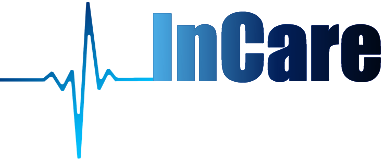What is sleep apnea?
There are different forms of sleep apnea, which is when you stop breathing during your sleep.
- Obstructive sleep apnea is when your throat narrows or closes during your sleep.
- Central sleep apnea is when your brain doesn’t send signals to your muscles to breathe.
Obstructive sleep apnea is the most prevalent variety of sleep apnea. Sleep apnea can be a potentially severe disease.
What are some common symptoms of sleep apnea?
If you snore and feel tired or sleepy during the day, you may have sleep apnea despite getting a full night’s sleep. Snoring, though, is not a must for you to be diagnosed with sleep apnea. Someone at home may also see you stop breathing during your sleep, although they may miss that as they would have to be watching you all night to detect sleep apnea. You may also sometimes wake up from your sleep gasping for air or startled.
Other sleep apnea symptoms include restless sleep, morning headaches, waking up frequently at night to urinate, having a dry mouth or sore throat in the morning, and having difficulty remembering things or thinking clearly. You may sometimes not have symptoms altogether.
How is sleep apnea diagnosed?
If your doctor suspects you may have sleep apnea, they will order a sleep study for you. Sleep studies could either be done at home or in a sleep laboratory. Your doctor will determine that based on multiple factors, that include, e.g., the presence of any other significant medical disorders you may already have. During the sleep study, you will be hooked up to equipment that monitors your heart rate, respiration, oxygen saturation, and other bodily functions.
What are the risks of sleep apnea?
Besides having a night of inadequate sleep, people who have sleep apnea can be at higher risk of car accidents or other types of accidents in situations where they need to have their full attention. If you have sleep apnea, you are more likely to have high blood pressure, heart attack, in addition to other significant heart problems. Treatment for sleep apnea can help in preventing some of these problems.
How is sleep apnea treated?
If you are overweight, losing weight may help your sleep apnea. In some people with short chin or small facial bones as the main reason for their sleep apnea, losing weight may not significantly affect their sleep apnea. Alcohol can make your sleep apnea worse. Sleeping on your back also can make your sleep apnea worse.
Since losing weight can be a challenge, most people start other sleep apnea treatments while losing weight.
CPAP (continuous positive airway pressure) is a machine to help keep your airway open at night during your sleep if you have sleep apnea. You would wear a face mask with the device, which may take some time to get used to. With the CPAP machine’s use, you will likely feel better in the morning and more refreshed and rested.
An oral appliance is another device you would wear at night in your mouth as an alternative treatment for mild or moderate sleep apnea. This device keeps your airway open at night. Lastly, some people may need surgery. Although surgery for sleep apnea can be quite extensive, painful, and sleep apnea may come back after surgery.
Do you think you have Sleep Apnea? Call our Pulmonary Clinic at (978) 254-4983 to get scheduled as soon as possible. Click here to Contact Us. If you are experiencing a medical emergency, please call 911.


